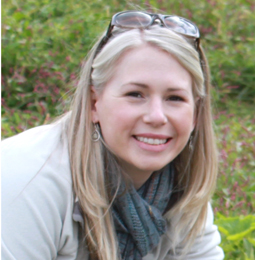The Team
Kim Seelos | CRISM Science Operations Uplink/Science Team Collaborator

Where did you grow up?
I grew up in the mountains of western North Carolina, in a small town called Franklin. My parents were both in science fields and we were lucky enough to spend a lot of time exploring the outdoors. So it was really no surprise that science and math came naturally to me and were my favorite subjects in school.
How
did you get interested in space exploration?
I became interested when I took an undergraduate class in planetary geology, and soon after had to decide what to focus on for my graduate degree. Planetary just seemed really cool!
What's
your educational background?
I received my B.S. in Geology from University of Georgia in Athens, GA, and went on to get my M.A. and Ph.D. in Earth and Planetary Science from Washington University in St. Louis, MO.
What
are your hobbies?
I love to read and cook, and go hiking and camping in the summer. When I have time I also enjoy photography, playing the piano, and doing crafty things with yarn like crocheting and tatting.
What's
your job on CRISM?
I manage many of the day-to-day uplink planning activities. I also do data validation, science analysis, and help out with education and public outreach.
What
excites you about exploring Mars?
Mars is fascinating to me because it is – or was – so much like Earth. It’s like a time capsule. We keep finding out new things about its past, too, that makes it even more interesting and leads to more and more questions. I hope that we can safely send human explorers there some day.
What
advice would you give to someone like you who wants to get involved in space exploration?
I love planetary science because people come from all different backgrounds and each person brings a different perspective for how to solve problems and answer tough questions. If you think you might be interested in planetary, I would recommend first building a strong foundation with a major in something you like – be it physics, chemistry, astronomy, geology, biology, or even math or engineering. NASA and many other institutions (like the Applied Physics Lab) offer internships and educational opportunities that are a great way to be introduced to space exploration, too. Other than that, ask questions and never stop being curious!
